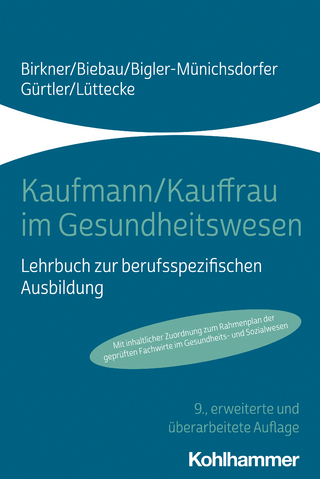
Intergenerational Influences on Fertility
Springer International Publishing (Verlag)
978-3-319-41296-2 (ISBN)
- Noch nicht erschienen - erscheint am 24.04.2025
- Versandkostenfrei innerhalb Deutschlands
- Auch auf Rechnung
- Verfügbarkeit in der Filiale vor Ort prüfen
- Artikel merken
This book is open access under a CC BY-NC 4.0 license.
This book is a result of an interdisciplinary, comparative project testing the hypothesis that kin will influence fertility, incorporating demography, evolutionary biology and anthropology.
It will include a review of existing literature on the subject which will show that family does matter for fertility, sometimes, but that there is considerable variation (1) in which family members matter; (2) in which fertility outcomes are affected (inter-birth intervals, age at first birth, total fertility); and (3) cross-culturally.
The empirical studies use advanced statistical techniques to develop a greater understanding of not just whether but why family matters for fertility - are relationships between family and fertility plausibly causal, and driven by helping behavior between kin? These studies will show that positive associations between family and inter-birth intervals are sometimes plausibly driven by helping behavior between kin, particularly in lower income settings; but relationships between kin and fertility in higher income contexts are less clear-cut. Further, relationships between kin may sometimes be competitive.
In the penultimate chapter, we discuss how intergenerational conflict may influence fertility outcomes, including a comparative analysis of age at first birth across 20 lower income populations suggests.
This book will interest evolutionary anthropologists, demographers, biologists, sociologists and other social scientists with interests in family or fertility.Chapter 1: Introduction: Why should family matter for fertility?.- Chapter 2: Reviewing the existing literature.- Chapter 3: What can lower income contexts tell us about family and fertility?.- Chapter 4: What can higher income contexts tell us about family and fertility?.- Chapter 5: Do families always cooperate? An investigation of intergenerational conflict.- Chapter 6: Conclusion.
| Erscheinungsdatum | 29.06.2020 |
|---|---|
| Reihe/Serie | Human Behavior, Biology and Evolution | SpringerBriefs in Anthropology |
| Zusatzinfo | Approx. 70 p. |
| Verlagsort | Cham |
| Sprache | englisch |
| Maße | 155 x 235 mm |
| Themenwelt | Studium ► Querschnittsbereiche ► Prävention / Gesundheitsförderung |
| Naturwissenschaften ► Biologie ► Evolution | |
| Sozialwissenschaften ► Ethnologie | |
| Sozialwissenschaften ► Soziologie | |
| Schlagworte | Anthropology • cross-cultural variances on how family does matter • cross-cultural variances on how family does matter for fertility • evolutionary biology • how intergenerational conflict may influence ferti • how intergenerational conflict may influence fertility outcomes • positive associations between family and inter-bir • positive associations between family and inter-birth intervals • Public Health • Social Sciences • using demographic data from both high and low inco • using demographic data from both high and low income settings • why family does matter for fertility |
| ISBN-10 | 3-319-41296-5 / 3319412965 |
| ISBN-13 | 978-3-319-41296-2 / 9783319412962 |
| Zustand | Neuware |
| Haben Sie eine Frage zum Produkt? |
aus dem Bereich


